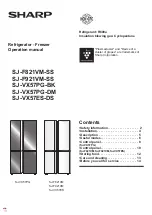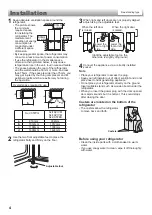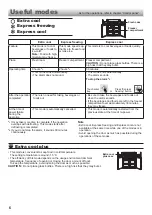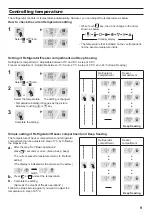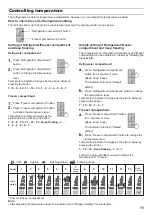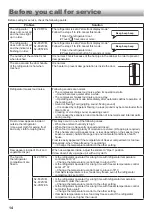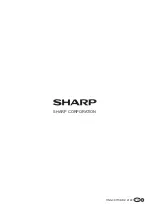
12
Freezer
• Freeze small quantities of food at a time in order to
freeze them quickly.
• Food should be properly sealed tightly or covered .
• Place foods in the freezer evenly.
• Label bags or containers to keep an inventory of
freezing food.
* Notes for ice making
- Except for the position in the picture of “Description”,
the ice making process may take longer.
- When you try to freeze much foods or water at once it
may slow down to make ice.
- You may activate Express freezing mode to make ice
quickly.
Refrigerator
Fruit / Vegetables
• Fruit and vegetables should be loosely enclosed in
a plastic material e.g. wrap, bags (do not seal) and
placed in the fruit and vegetable crisper to minimize
moisture loss.
• Fruits and vegetables which are easily effected by low
temperature should be stored in a cool place except for
the refrigerator.
Dairy Products & Eggs
• Most dairy products have their best-before date on
the outer packaging which informs the recommended
temperature and shelf life of the foods.
• Eggs should be stored in the egg holder.
Meats / Fish / Poultry
• Place on a plate or a dish and cover with paper or
plastic wrap.
• For larger cuts of meat,
fi
sh, or poultry, place to the
rear of the shelves.
• Ensure all cooked food is wrapped securely or placed
in an airtight container.
*Notes for fresh food
- Fresh food (securely wrapped) should be stored in
limited time to prevent spoilage and badly affecting
other stored foods.
• Ensure that the food is of the freshest possible quality to maximize the storage life of perishable food. The following is
a general guide to help promote longer food storage.
• Food has a limited storage life. Make sure not to exceed use-by date indicated by manufacturer.
• Install the refrigerator in a well-ventilated area and keep the space to ventilate.
• Keep your refrigerator out of direct sunlight and do not place it next to heat generating appliance.
• Avoid opening the door as much as possible.
• Hot food should be cooled before storing.
• Place the food evenly on the shelves to allow the cool air to circulate efficiently.
Tips for saving energy
Storing food
IN
OUT
Advice for preventing dew or
frost inside the refrigerator
• Keep the door securely closed. If the food falls down,
it may cause a gap between the cabinet and the door.
Move it back to the shelf or the pocket.
• Open and close the door quickly as much as possible.
Dew or frost may appear if the door is left open for a
long period of time or opening and closing of the door
is very often.
• Stored items should be packed or sealed with such as
food containers or plastic wraps. (Especially food with
high-moisture)
Advice for storing food
• Evenly place the food on the shelves to allow the
cooling air to circulate ef
fi
ciently.
• Opening the door for long periods can cause
a signi
fi
cant increase of the temperature in the
compartments of the appliance.
• Hot food should be cooled before storing. Storing hot
food increases the temperature in the unit and the risk
of food spoilage.
• Do not block the outlet and inlet of the cool air
circulating circuit with food or containers; otherwise the
food is not be evenly cooled throughout the refrigerator.
• Do not place food directly in front of cold air outlet. This
may lead to the food freezing.

